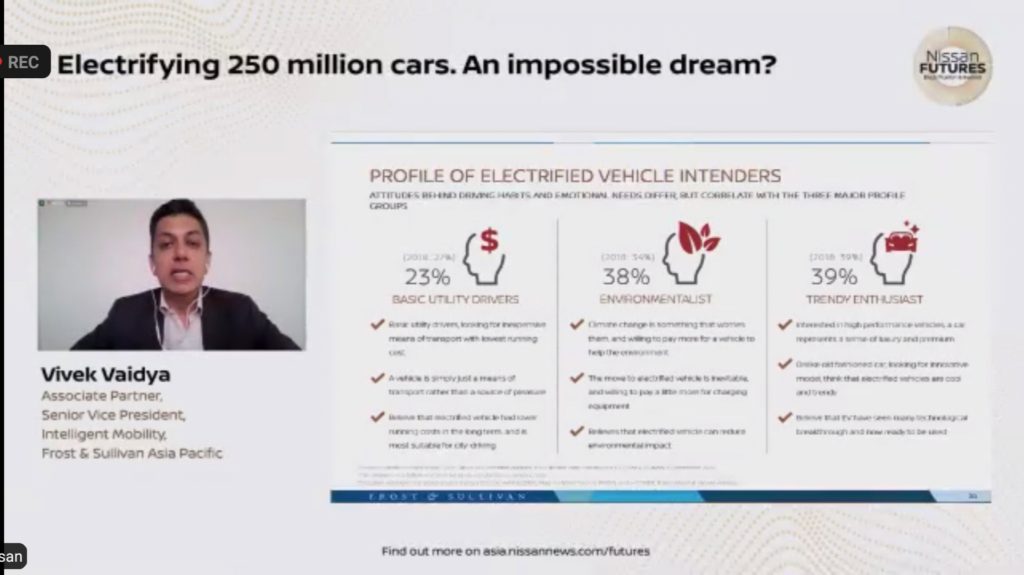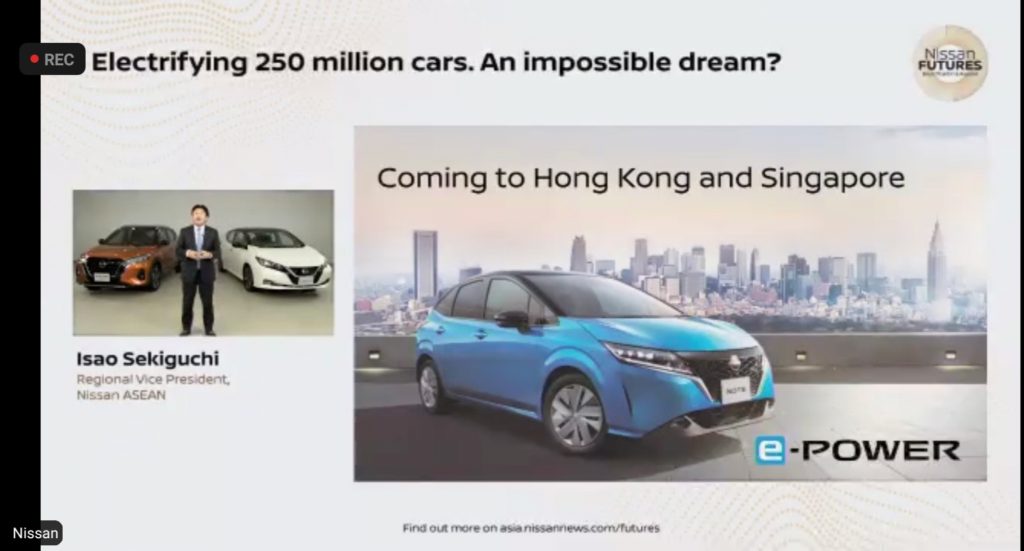New study shows that Filipinos and their Southeast Asian neighbors continue to be highly enthusiastic about owning an electrified vehicle. The enthusiasm is largely driven by a growing need to create a more sustainable future.

The second edition of the Nissan-commissioned study by Frost & Sullivan, titled “The Future of Electrified Vehicles in Southeast Asia” was released recently during “Nissan FUTURES – Electrification and Beyond”, a virtual gathering of industry leaders, government officials and media.

Consumer research in Thailand, the Philippines, Indonesia, Malaysia, Vietnam and Singapore reveals that nearly two-thirds (64%) of respondents across Southeast Asia say they are more willing to consider an electrified vehicle than they were five years ago. 66-percent of consumers across the region believe they will inevitably adopt electrified mobility as part of their lives in the near future.
According to the study, 45-percent of Filipino car drivers state they would certainly consider an electrified vehicle as their next car purchase within the next three years. The positive impact to the environment is the most motivating factor for Filipinos to buy an electrified vehicle, as 46% of respondents – the highest in the region – feel strongly about the environment and climate change.
 The study also unveils growing environmental awareness across Southeast Asia, with respondents believing that their adoption of an electrified vehicle would undoubtedly contribute to environmental protection. In 2020, 38-percent of regional respondents can be classified as ‘environmentalists’, compared to 34-percent in a similar research in 2018.
The study also unveils growing environmental awareness across Southeast Asia, with respondents believing that their adoption of an electrified vehicle would undoubtedly contribute to environmental protection. In 2020, 38-percent of regional respondents can be classified as ‘environmentalists’, compared to 34-percent in a similar research in 2018.
This group of consumers is driven by strong environmental awareness and climate change concerns. They view electrified vehicle use as a way to do their bit for the environment. Eighty-one percent of study respondents across the region mentioned that their choice would be significantly influenced by different power sources. This care for the environment was found to be most important to consumers in the Philippines and Thailand.
The fear of running out of power before arriving at the charging station (48%) continues to be the most significant barrier in the adoption of an electrified vehicle across the region. While barriers remain, consumers are more enthusiastic about the adoption of electrified vehicles.
In line with the 2018 findings, over three-quarters of the recent study respondents (77%) indicate that tax benefits and installation of charging stations at apartment buildings (75%) are the top-2 incentives for them to switch to an electrified vehicle. For Filipinos to make that switch to EVs, survey respondents identify tax incentives (80%), charging infrastructure in residential areas (77%), and priority lanes for EVs (52%) as top incentives for that move. This demonstrates the ongoing need for car manufacturers, policy makers and private parties to collaborate to spur the adoption of electrified mobility.
The study “The Future of Electrified Vehicles in Southeast Asia” was conducted by Frost & Sullivan in September 2020 in six ASEAN markets: Indonesia, Malaysia, Singapore, Thailand, the Philippines and Vietnam. The findings are based on 3,000 online customer responses among car drivers in select cities, to understand customers’ awareness, attitudes, behavior and perceptions towards electrified vehicles. “Electrified vehicle” in this study means battery electric vehicle, plug-in hybrid electric vehicle and e-POWER. It excludes full hybrid vehicles. The research is a follow-up from a study conducted in January 2018.

